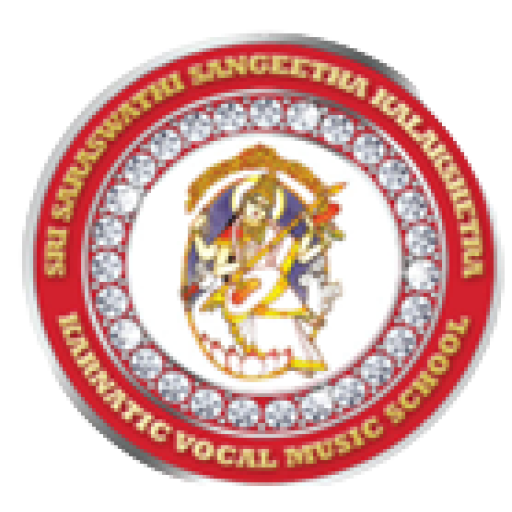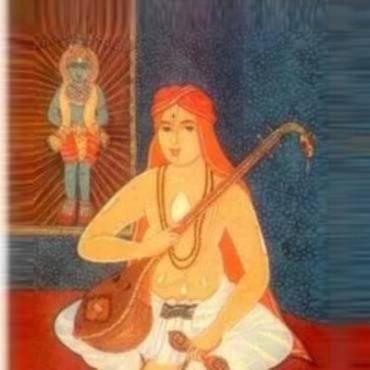The Advanced Karnatic Varnams & Kritis Learning Course at Saraswathi Sangeetha Kalakshetra (SSK) is a prestigious program designed for dedicated students who have already acquired a strong foundation in Carnatic music and are eager to explore the intricate and profound compositions of this rich musical tradition. This course represents the next level of musical education, focusing on the mastery of varnams and kritis, which are among the most revered and challenging forms of Karnatic music.
Learning varnams and kritis in Carnatic music goes beyond just mastering specific compositions; it provides students with a deeper understanding of the art form as a whole. Varnams, with their intricate melodic patterns and rhythmic structures, serve as a crucial training ground for developing rhythmic proficiency. They challenge students to navigate complex rhythmic variations, syncopations, and tala (rhythm) intricacies. By practicing varnams, students sharpen their rhythmic sense and improve their ability to execute intricate rhythmic patterns with precision.
On the other hand, kritis are compositions that showcase the beauty and intricacy of ragas and the creative genius of the composers. They encapsulate the melodic and lyrical aspects of Carnatic music, exploring the range and nuances of ragas through intricate melodic phrases and expressive lyrics. Studying and performing kritis allows students to delve into the rich musical heritage of Carnatic music and appreciate the profound artistic expressions embedded within these compositions.
Advanced-level training in Carnatic music requires students to have a strong foundation in basic swara knowledge, rhythmic understanding, and raga identification. This foundation is established through the completion of intermediate geetham training. Students should demonstrate proficiency in executing complex swara patterns, possess a thorough grasp of various talas (rhythmic cycles), and have extensive knowledge of different ragas (melodic frameworks). Additionally, mastery of gamakas (ornamentations), advanced techniques, notation reading, and performance experience are essential prerequisites for advanced-level learning. These requirements serve as the necessary groundwork for students to delve into complex compositions, improvisations, and the expressive elements of Carnatic music.
The Advanced syllabus in Carnatic music covers a wide range of compositions and ragas (such as Mohanam, Abhogi, Shankarabharanam, Darbar, Kalyani, Hamsadwani, Navaragamalika, Vasantha, Natakuranji, and more), allowing students to explore the intricacies of the art form. They learn varnams in various ragas, delving into complex melodic patterns, rhythmic structures, and improvisation. The focus also lies on the kritis of the Trinity of Carnatic music: Thyagaraja, Muthuswami Dikshitar, and Syama Sastri, which enhance their understanding of raga elaboration and emotive aspects. Additionally, students are exposed to compositions by other notable composers, expanding their musical perspective. The syllabus also emphasizes refining skills in voice culture, ornamentation, advanced rhythms, and improvisation, while promoting analysis and understanding of ragas. Overall, the advanced syllabus nurtures students’ repertoire, musical understanding, and artistic growth by allowing them to express their individuality and creativity through mastering complex compositions.
ADVANCE KARNATIC COURSE OUT COME LEARNING VARNAMS
⦁ Technical Mastery: Varnams are highly technical compositions that challenge students with intricate melodies and rhythmic patterns. Practicing Varnams enhances a student’s technical prowess, including their ability to handle complex swara patterns and talas.
⦁ Raga Exploration: Varnams often explore multiple ragas within a single composition. Students learn to recognize and render different ragas effectively, broadening their understanding of melodic modes in Karnatic music.
⦁ Rhythmic Precision: Varnams are excellent for improving rhythmic accuracy. Students develop a strong sense of rhythm and learn to execute complex tala patterns with precision.
⦁ Vocal Agility: Singing Varnams demands vocal flexibility and agility. Students work on modulating their voice to navigate the various swaras and gamakas (ornaments) found in Varnams.
⦁ Expression and Emotion: While Varnams are technically challenging, they also offer opportunities for expression. Students learn to infuse these compositions with appropriate emotion, adding depth to their renditions.
⦁ Stage Performance Skills: Varnams prepare students for solo performances, enhancing their confidence and stage presence. They learn how to engage with an audience and deliver a polished performance.
Kriti Outcomes:
⦁ Melodic Proficiency: Kritis are more melodic and lyrical in nature, focusing on the beauty of the raga. Studying Kritis enhances a student’s ability to render ragas with emotive depth and finesse.
⦁ Lyric Interpretation: Kritis often have meaningful lyrics that convey devotional or philosophical themes. Students learn to interpret and convey the meaning of the lyrics effectively, connecting with the audience on a deeper level.
⦁ Devotional Expression: Many Kritis are composed with devotional themes, allowing students to explore and express their spirituality through music.
⦁ Cultural Heritage: Kritis often draw from traditional texts and themes, connecting students to the cultural and spiritual heritage of Karnatic music.
⦁ Rasa and Bhava: Kritis require students to convey different rasas (emotions) and bhavas (moods). Students develop the ability to evoke specific emotions in their listeners through their singing.
⦁ Versatility: Kritis are a diverse category of compositions, and mastering them equips students to perform a wide range of musical pieces within the Karnatic tradition.
At what age can I start classes for my kids?
Do you take a trial class?
Is it usually a group class or an one-on-one class?
What languages are these bhajans?
Do you work to improve students' pronunciation?
Is it practical for a parent and kid to be a student at the same time?
Can a Beginner participate in Events conducted by the school?
Is there an extra charge for access to Google Classroom?
Is it necessary to have accompaniment on a percussion instrument like tabla or mridangam at Beginner level?
Book an Orientation
SSK School Year ( Sep -May )
- 50 group sessions
- Duration 60 to 90 mins
- Min 3 Students in a group to start
- Ages 12 and up & Adults



